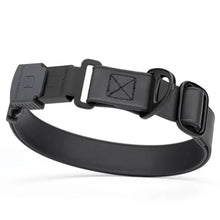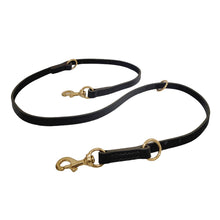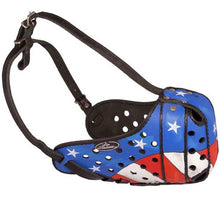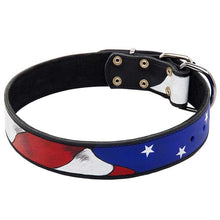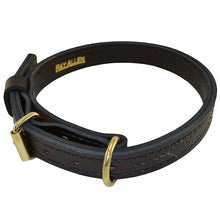German Shepherd Noise Sensitivity: Helping Dogs Cope with Loud Sounds

German shepherds have excellent hearing. They can hear some sounds long before you can and they can even hear some things that you can’t. Their excellent hearing is usually a great skill to have. But, when sounds are loud, it can impact them in negative ways.
Dogs are especially sensitive to high-pitched sounds, some of which would be undetectable to your ears. While most adults can’t hear sounds over 20,000 Hertz (Hz), healthy dogs can hear sounds between 47,000 to 65,000 Hertz.
But the differences don’t end there. It probably comes as no surprise that your dog can hear lower-intensity or softer sounds better than you. According to Stanly Coren, Ph.D, “For some sounds, a dog’s hearing is hundreds of times better than ours, whereas for other sounds, dogs and humans have sound sensitivities that are very much the same.”

So, you can imagine how loud the world is to your dog. When sounds get especially loud, it can cause them to get fearful and anxious. This is why so many dogs panic and are desperate to escape their homes and yards on the 4th of July.
Some symptoms of noise anxiety include:
• Pacing
• Shaking
• Trembling
• Panting
• Tail tucking
• Holding the ears back
• Whale eyes
• Hiding
• Trying to escape, bolting
• Fear of being restrained
• Refusing to move
• Unusual vocalizations
• Accidents in the house
• Destructive behaviors such as chewing, digging, or scratching

When loud noises come on suddenly, it is even more distressing for dogs. Gunshots, fireworks, alarms, warning sirens, a car backfiring, and thunderstorms are some of the more common sounds that dogs have a problem with. But even dropping something on a hard floor can startle a dog.
German shepherds have a reputation for being brave and protective. And, they deserve it. However, not all dogs have the wits to run toward loud noises or remain unphased by loud sounds. That’s why not all dogs are suitable for work in law enforcement or the military.
For the dogs that get anxious when they hear loud sounds, there are some things you can do to help them cope. But first, let’s touch on the prevention of sound sensitivity known as conditioning or desensitization.

Conditioning or desensitizing your puppy to sounds is the best way to help prevent sound sensitivity. Good breeders begin exposing puppies to a variety of loud noises while creating a positive association when the puppies hear them.
The puppies learn they have nothing to fear from loud sounds and carry on about their business. However, each puppy is an individual and their reactions to sounds may be different from their littermates. What works for one may not work for another and genetics play a huge role.

Here are some ways to help your dog cope with loud sounds:
Positive Distractions
Next time your dog starts to feel anxious about noise, try using their favorite toy to distract them. Although you may not be able to go outside for a game of fetch, some fun indoor toys and games can be used. If your dog can't focus and is too scared to play, stop the game so they don’t develop a negative association with it.
Practice training
Just like toys, you can use training as a distraction. Have your dog focus on you and stay upbeat. Reward your dog with high-value treats or a tug toy. If your dog is too distracted and anxious, back off the training.
Allow your dog to go to a safe space
Be sure your dog has a place they feel safe in to ride out the noise. This could be their crate, a central room of your house, their bed, closet with the door cracked, or even the bathroom. Close the doors and blinds so they can’t see outside and use the television or music to muffle the sounds.

Be reassuring
Be reassuring and calm. Play the radio or television. Provide a special long-lasting chew or toy stuffed with their favorite filling. Allow your dog to follow you around and when possible, stay near their safe space with them but do what you’d normally do in that space.
Use crates with caution
Some dogs feel safe in their crate while others will panic and can injure themselves. If your dog panics in their crate, it’s probably better to let them out. Just make sure the inside doors are closed so that they can’t escape the house and it may even be wise to leash them.
Get professional help
If your dog panics to the point that they harm themselves or you, you should get professional help. A vet can recommend medications and a behaviorist may be able to help desensitize your dog to the sounds that trigger their fear.
Muffle the noise
Did you know that you could buy ear muffs for dogs? If you try them out, get your dog used to them before they need them. Allow them to get familiar with them before trying them on. It may feel strange to your dog when their hearing is suddenly altered so start off wearing for a few seconds and increase over time (of course, giving lots of treats).
Calming shirts and wraps
Compressive clothing such as a snug shirt can also help calm anxious dogs.
Nutraceuticals
Many calming products on the market can help your dog. From calming chews to CBD oil to calming probiotics. Each dog is unique so what might work for one may not work for another. But, some dogs have great results when using natural products and they are generally safe for most.
You may also like: 5 Ways to Instantly Become A Better German Shepherd Dog Owner!







